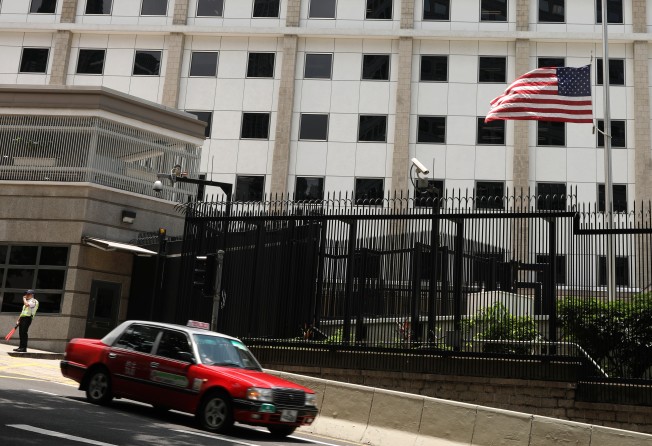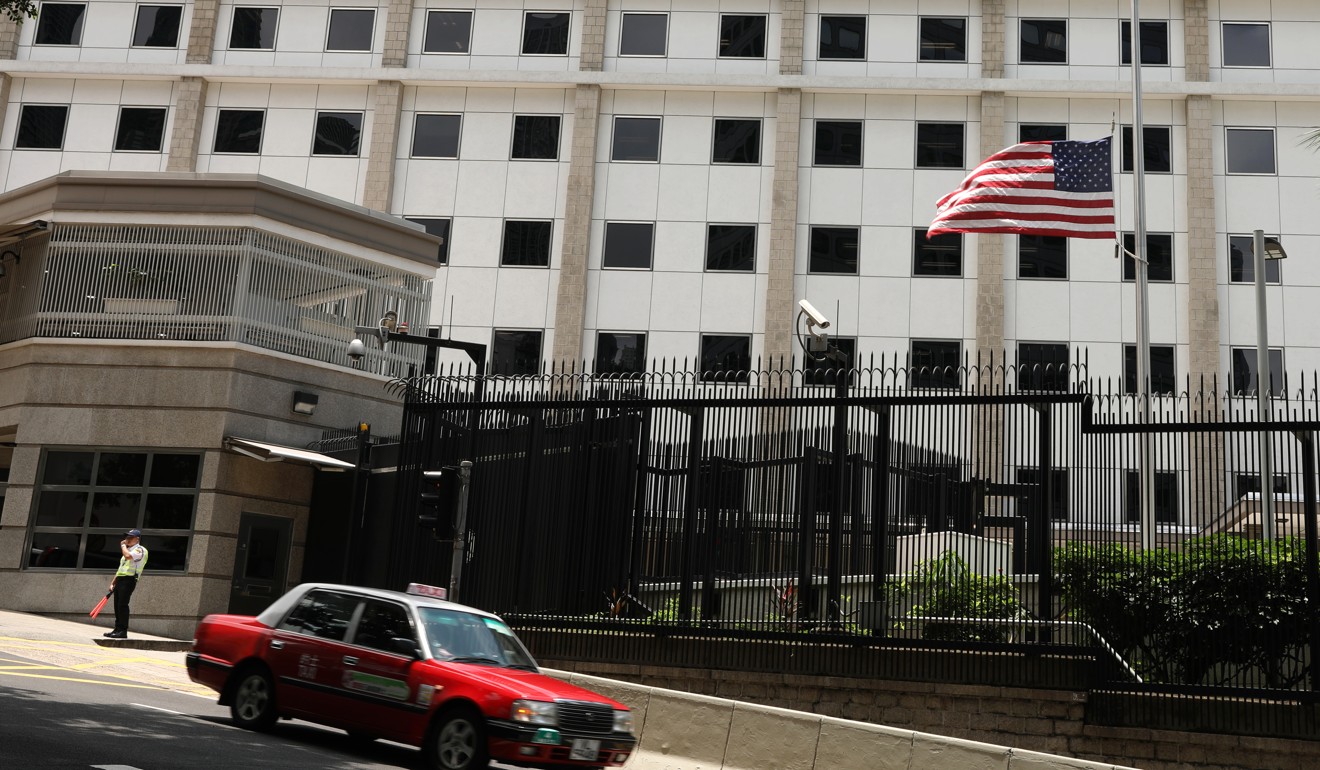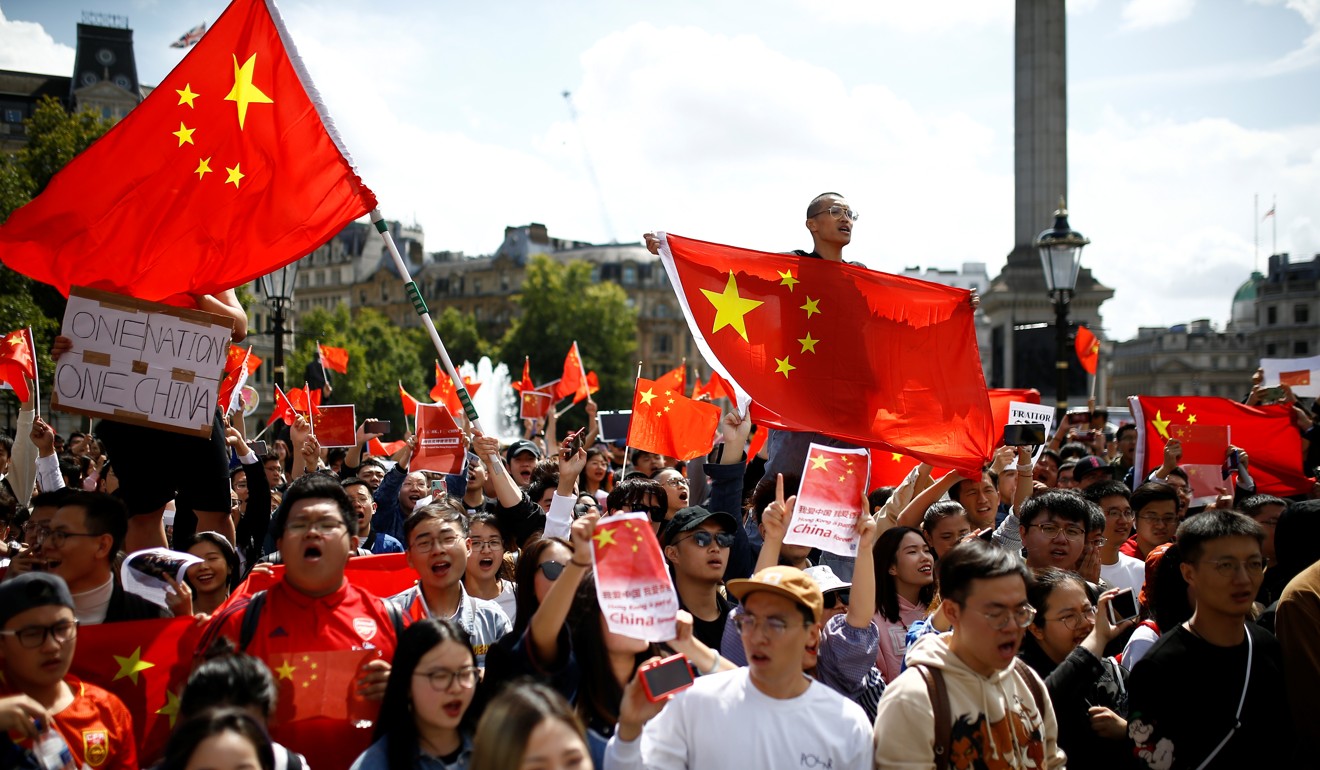Mainland Chinese tourist jailed for defacing US consulate in Hong Kong in response to so-called foreign meddling in anti-government protests
- Unemployed Qin Jingjun, 37, tried to spray slogan in Chinese on front gate of diplomatic mission
- Judge dismisses lawyer’s claim that Qin had acted on a momentary impulse

A mainland Chinese tourist was jailed for four weeks on Monday for vandalising the US consulate general in Hong Kong, which he said he did to show his discontent against so-called foreign meddling in the city’s recent anti-government protests.
Unemployed man Qin Jingjun, 37, attempted to spray “China will prevail” in Chinese on the front gate of the consulate on August 18, Eastern Court heard.
But he was intercepted by a security guard before having the chance to spray the word “prevail” and was subsequently arrested by a police officer who arrived on the scene.
Qin, who pleaded guilty to one count of criminal damage on Monday, told the police after his arrest that he believed the United States was behind the recent protests, so he turned to vandalism to show his dissatisfaction.
“That is really not a justification for the damage he had done,” Principal Magistrate Bina Chainrai hit back, before sentencing him. “It is not acceptable in this court.”
Qin’s case is part of a rising phenomenon of Chinese nationalism on display around the world in the past week, triggered by Hong Kong’s anti-government protests.
The protests, now into their 11th week, were initially sparked by the Hong Kong government’s controversial extradition bill, which, if passed, would have seen fugitives being sent to mainland China for trials under ad hoc arrangements.
As protesters in the city staged increasingly violent demonstrations against the now-suspended bill – demanding, among other things, its full withdrawal – Beijing has been labelling protesters “separatists” and calling the movement “the budding shoots of terrorism”.

Chinese citizens from Australia to Britain have turned up in droves since last week to oppose marches in support of Hong Kong protesters. The one in Melbourne descended into clashes, with a pro-Beijing demonstrator attacking an Australian journalist.
On Monday, social media sites Facebook and Twitter announced they had suspended hundreds of accounts alleged to be part of a Chinese government-backed campaign to sow political discord in Hong Kong. They also said they would no longer accept advertising from state-controlled media outlets.

The court heard Qin bought his spray paint in China and arrived in the city on the same day he committed his offence.
A security guard spotted him and rushed over to stop him. The guard reported the case to police.
He told the police officer: “I am unhappy with the Americans so I used the paint to spray [them].” He insisted that he had not been instructed by anyone to carry out the act.
Qin’s lawyer told the court that his client would not compensate the consulate for the damage, despite his remorse and HK$3,000 (US$382) in his possession. He also said Qin committed the offence out of a momentary impulse.
But the magistrate dismissed the notion that it might have been on the spur of the moment, pointing out Qiu had bought the can of spray paint in mainland China before bringing it to Hong Kong to carry out the act.